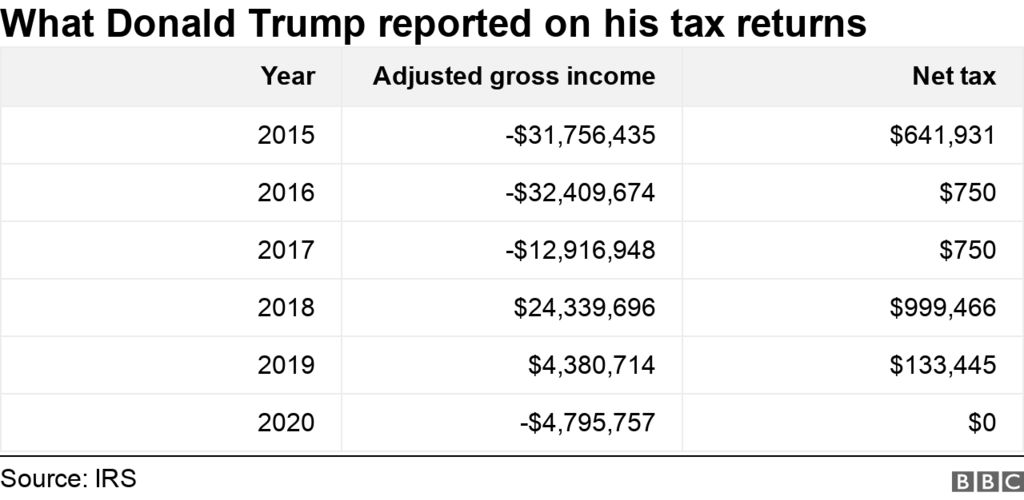Understanding the financial ties of public figures is crucial, especially when it comes to high-profile individuals like Donald Trump. The question "who does Trump owe money to" has been a topic of discussion in political and financial circles alike. As we delve into this complex topic, we will explore various aspects of Trump's financial obligations, revealing who his creditors are and the implications of these debts.
With a business empire spanning real estate, entertainment, and various ventures, Trump's financial landscape is intricate. This article aims to provide a comprehensive overview of Trump's financial obligations, the entities involved, and how these debts may affect his political aspirations and public image. By examining credible sources and data, we can better understand the extent of Trump's financial dealings.
In a world where financial transparency is paramount, knowing who Trump owes money to can illuminate his financial stability and potential conflicts of interest. This article will provide insights grounded in factual information, ensuring that readers are well-informed about this critical aspect of Trump's life.
Table of Contents
- Biography of Donald Trump
- Overview of Financial Obligations
- Key Creditors of Trump
- Implications of Trump's Debts
- Real Estate Debts
- Debts from Business Ventures
- Strategies for Debt Repayment
- Conclusion
Biography of Donald Trump
Donald John Trump, born on June 14, 1946, in Queens, New York City, is an American businessman, television personality, and politician. He served as the 45th president of the United States from January 20, 2017, until January 20, 2021. Before his presidency, Trump was known for his real estate empire and for hosting the reality TV show "The Apprentice."
| Personal Information | Details |
|---|---|
| Name | Donald John Trump |
| Date of Birth | June 14, 1946 |
| Birthplace | Queens, New York, USA |
| Occupation | Businessman, Politician, Television Personality |
| Presidency | January 20, 2017 - January 20, 2021 |
Overview of Financial Obligations
Trump's financial obligations are diverse, encompassing loans, mortgages, and other debts across various sectors. As of recent reports, Trump's outstanding debts are estimated to be in the hundreds of millions of dollars, primarily tied to his real estate holdings and business ventures.
Types of Debts
- Bank Loans
- Mortgages on Properties
- Personal Loans
- Credit Lines from Lenders
Key Creditors of Trump
Several institutions and individuals are known to have financial ties with Trump. Among the prominent creditors are:
Major Financial Institutions
- Deutsche Bank
- Signature Bank
- Wells Fargo
Individual Lenders
In addition to banks, Trump has also relied on private loans from individual investors and family members, which contribute to his overall debt portfolio.
Implications of Trump's Debts
Trump's financial obligations raise concerns regarding potential conflicts of interest and influence over his political decisions. Critics argue that substantial debts could compromise his integrity and the policies he promotes.
Political Ramifications
As Trump remains a significant figure in the Republican Party, questions about his financial stability may impact his political ambitions, including potential future presidential campaigns.
Real Estate Debts
Trump's real estate ventures are among his most significant financial commitments. Properties such as Trump Tower and various golf courses are tied to substantial mortgages and loans.
Property-specific Loans
Each property has specific financial agreements, and understanding these can shed light on Trump's overall debt situation. For example, Trump Tower has an estimated mortgage of over $100 million.
Debts from Business Ventures
Trump's various business ventures, including hotels and casinos, also contribute to his financial obligations. The failure of some of these ventures has led to significant financial losses and further debts.
High-profile Business Failures
- Trump Airlines
- Trump University
- Trump Steaks
Strategies for Debt Repayment
To manage his debts, Trump may employ various strategies, including refinancing loans, selling assets, and restructuring his business operations to improve cash flow.
Potential Asset Sales
Trump could consider selling non-essential assets to reduce his financial burden, which may include properties that are not generating significant income.
Conclusion
In conclusion, understanding who Trump owes money to is essential for comprehending his financial landscape and the potential implications for his political future. With substantial debts tied to various creditors, including major banks and private lenders, questions about his financial stability remain pertinent.
As this topic continues to evolve, it is crucial for readers to stay informed and engaged. Feel free to leave your thoughts in the comments section below, share this article, or explore additional resources on our site for more in-depth insights.
Final Thoughts
Thank you for reading! We hope this article has provided you with valuable insights into Trump's financial obligations. We invite you to return for more informative articles and updates on relevant topics.




